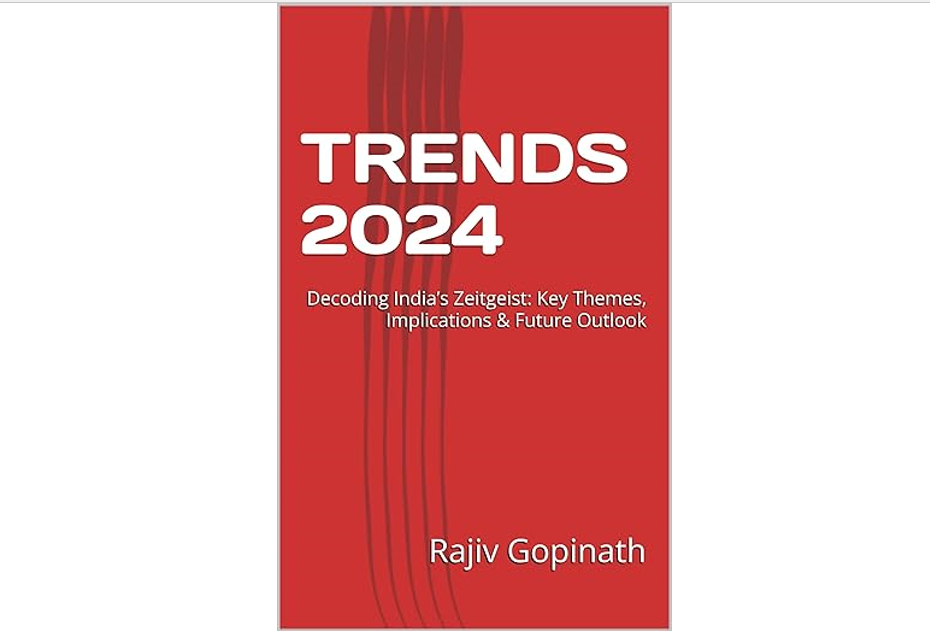Why Consumers Are Renting Electronics Instead of Buying Them
Joe still remembers staring at his two-year-old laptop as it struggled to run the new video editing software he needed for an urgent project. The internal debate was familiar—spend $2,000 on a high-performance replacement that would likely be outdated in 18 months, or make do with increasingly frustrating performance lags. That evening, a colleague mentioned she had recently started renting her work equipment through a technology subscription service. "I get the latest MacBook Pro, and when a new model comes out, I simply upgrade. No large upfront costs, no electronic waste, no obsolescence anxiety." The concept stopped Joe in his tracks. He had always viewed electronics as assets to be purchased, used until they failed, and then replaced—a cycle of increasing expense and diminishing returns. But here was an entirely different approach: technology as an ongoing service rather than a depreciating asset. His exploration of this concept revealed not just a business model shift but a fundamental rethinking of our relationship with technology in an era of accelerating innovation. The more Joe investigated, the more he realized that the shift from owning to renting electronics represented one of the most significant consumption transformations of the digital age—and one that offered surprising benefits for consumers, businesses, and the environment alike.
Introduction: The Ownership-to-Access Transformation
The traditional paradigm of electronics ownership is undergoing a profound transformation as consumers increasingly shift from purchasing devices outright to accessing them through rental and subscription models. This evolution reflects broader changes in consumer values, economic pressures, and technological advancement rates that make ownership less advantageous than it once was. The electronics rental market, valued at $18.2 billion in 2023, is projected to grow at a CAGR of 15.7% through 2030, signaling a fundamental shift in how consumers acquire and use technology.
This transition from ownership to access-based consumption represents more than a financing preference—it reflects changing attitudes toward material possessions, sustainability concerns, and a desire for flexibility in an era of rapid technological change. By examining the drivers behind this shift, we can better understand not only current consumer behavior but also the future trajectory of our relationship with the devices that power our digital lives.
1. The Economics of Constant Innovation: Why Ownership Has Lost Its Appeal
The accelerating pace of technological innovation has fundamentally altered the value proposition of electronics ownership.
Depreciation and Obsolescence Anxiety
- High-end electronics lose 35-45% of their value within the first year of ownership
- The average smartphone replacement cycle has shortened from 2.7 years to 2.2 years since 2016
- Computing devices face both performance obsolescence (inadequate specifications) and compatibility obsolescence (unsupported software)
The Total Cost of Ownership Challenge
- Initial purchase price represents only 65% of the five-year cost of owning business electronics
- Maintenance, insurance, upgrades, and disposal costs create hidden ownership expenses
- Rental models convert large capital expenditures into predictable operating expenses
According to Professor Clayton Christensen's disruption theory, "The rate at which products improve over time exceeds consumers' abilities to use those improvements," creating an environment where ownership becomes increasingly irrational for many use cases.
2. The Subscription Lifestyle: Cultural Drivers of the Rental Model
Beyond economic considerations, cultural shifts have created fertile ground for electronics rental models to flourish.
The Experience Economy and Status Signaling
- Young consumers increasingly define status through experiences rather than possessions
- Access to the latest technology offers social capital without wealth demonstration
- Research from Dr. Elizabeth Dunn of the University of British Columbia indicates that experiential purchases create more lasting satisfaction than material acquisitions
Minimalism and Digital Nomadism
- Growing preference for reducing physical possessions and increasing location flexibility
- 36% of millennial professionals self-identify as "digital nomads" or aspiring to that lifestyle
- Electronics rental eliminates concerns about transport, international warranties, and local compatibility
Sustainability Consciousness
- 76% of millennial and Gen Z consumers consider environmental impact in purchasing decisions
- E-waste represents the fastest-growing waste stream globally, with only 17.4% properly recycled
- Rental models typically include responsible end-of-life handling through professional refurbishment or recycling
Professor Juliet Schor of Boston College notes that rental models provide "sustainability without sacrifice" by allowing consumers to align environmental values with quality-of-life desires.
3. Technology Rental Business Models: Evolving Beyond Leasing
The modern electronics rental ecosystem has evolved far beyond traditional leasing arrangements.
Flexible Subscription-Based Access
- Short-term commitments with easy upgrade paths distinguish modern models from traditional leases
- Companies like Grover offer month-to-month electronics subscriptions with damage protection included
- Apple's iPhone Upgrade Program combines hardware, software, and services in a unified subscription
Enterprise Technology-as-a-Service
- Corporate adoption of Device-as-a-Service (DaaS) models has increased 71% since 2019
- HP, Dell, and Lenovo offer comprehensive programs that include deployment, management, and recovery
- These programs reduce total technology costs by 25-30% according to Deloitte research
Specialized Use Case Rentals
- Camera equipment rental platforms like LensRentals serve professionals with occasional high-end needs
- Gaming hardware subscriptions through services like Shadow provide access to high-performance systems via cloud computing
- Event and production equipment rentals have expanded to consumer markets through platforms like Fat Llama
According to Harvard Business School professor Karim Lakhani, "The rental model transforms the consumer relationship from a transactional one to an ongoing service relationship, creating opportunities for continuous improvement and engagement."
4. AI and Data-Driven Optimization of the Rental Experience
Artificial intelligence is transforming the electronics rental experience through predictive maintenance, personalized recommendations, and streamlined operations.
Predictive Maintenance and Proactive Service
- AI monitors device performance metrics to identify potential issues before failure
- Rental providers deploy updates and maintenance based on usage patterns
- Google's Pixelbook Enterprise program uses machine learning to predict battery degradation and proactively replace devices
Usage-Based Recommendations
- AI analyzes usage patterns to suggest optimal device specifications
- Subscription services offer personalized recommendations that prevent overpaying for unnecessary features
- According to research from MIT, AI-driven recommendations reduce technology spending by 22% while increasing user satisfaction
Seamless Logistics Management
- Automated systems optimize device circulation, refurbishment, and deployment
- Rental platforms use predictive algorithms to position inventory based on anticipated demand
- Machine learning optimizes the timing of upgrade offers based on individual usage patterns and new product releases
Recent analysis from McKinsey suggests that AI-optimized rental models could reduce the overall cost of technology access by 15-20% compared to traditional ownership, while simultaneously increasing user satisfaction and reducing environmental impact.
Conclusion: The Future of Electronics Consumption
As the electronics rental model continues to mature, several key developments are likely to emerge:
- Integration of rental models with broader technology ecosystems and service bundles
- Increased personalization through AI-driven usage analysis and recommendation engines
- Development of secondary marketplaces for refurbished rental returns
- Emergence of circular economy initiatives focused on maximizing device lifespan and recyclability
The shift from ownership to rental represents not just a financing preference but a fundamental reimagining of our relationship with technology—prioritizing access over possession, service over product, and flexibility over commitment.
Call to Action
For consumers contemplating their next technology acquisition, consider these strategies:
- Evaluate the true total cost of ownership versus rental options, including upgrade costs and residual value
- Assess your need for the latest technology against the premium paid for constant access to innovation
- Consider environmental impact alongside financial considerations when making acquisition decisions
- Explore specialized rental options for high-cost equipment needed only occasionally
For businesses developing electronics offerings, the rental revolution demands attention:
- Explore hybrid models that combine ownership and rental options to serve diverse consumer segments
- Invest in circular design principles that enhance product longevity and refurbishment potential
- Develop value-added services that enhance the rental experience beyond mere device access
The future of electronics consumption increasingly belongs to those who understand that the value lies not in ownership but in the access, experience, and services that technology enables. As innovation cycles continue to accelerate, the wisdom of renting rather than owning becomes increasingly apparent for both consumers and enterprises alike.
Featured Blogs

TRENDS 2024: Decoding India’s Zeitgeist: Key Themes, Implications & Future Outlook

How to better quantify attention in TV and Print in India

AI in media agencies: Transforming data into actionable insights for strategic growth

How the Attention Recession Is Changing Marketing

The New Luxury Why Consumers Now Value Scarcity Over Status

The Psychology Behind Buy Now Pay later

The Rise of Dark Social and Its Impact on Marketing Measurement

The Role of Dark Patterns in Digital Marketing and Ethical Concerns








